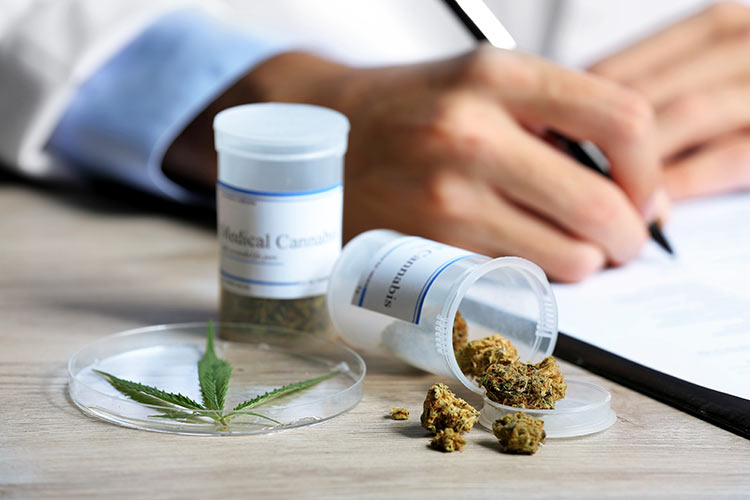Table of Contents
- 1 Knowing the Law
- 2 How Can You Educate Yourself About The Cannabis Laws In Your Area?
- 2.1 What Are The Legal Consequences For The Illegal Use Of Cannabis?
- 2.2
- 2.3 A number of different federal laws have been enforced against cannabis users. For example, cannabis use can be punished as a misdemeanor, punishable by up to one year in prison, or a fine of $10,000. Also, cannabis use can be punished as a felony, punishable by up to three years in prison, or a fine of $10,000. Also, possession of cannabis, in the form of any amount, can be punished as a misdemeanor, punishable by up to one year in prison. However, one may be able to plead “manufacture or cultivation” as an excuse in order to avoid these punishments.
- 2.4
- 2.5 Smoking and using cannabis can result in many different penalties, including criminal charges, fines, and probation. Cannabis is still considered to be a controlled substance, and anyone who violates the terms of their probation or parole may face serious consequences.
- 2.6
- 2.7 Similar to how laws about cannabis vary from state to state, the legal consequences also differ. While some states will penalize you for your illegal use of cannabis, others will require you to spend time at the jail on top of the penalty. The amount of penalty also differs per state.
- 2.8
- 2.9 If You’re Planning To Run A Cannabis Business, Hiring A Lawyer Helps
- 2.10
- 3 Legal Help
- 4 Knowledge Is Power
Last Updated on June 27, 2022 by Team Spinfuel
Cannabis Laws – There are many reasons why knowing cannabis laws in your area is important. If you are growing, selling, or using cannabis in any way, you need to be aware of the local laws regarding these activities. Even if you’re a conservative resident in a small town, for example, there may be some ordinances that are so strict that you could spend a lot of time in jail for violating them.
Beyond the laws that you need to know about each and every state, it is also important to understand which legal purposes are accepted for use in different states. For example, the use of cannabis for recreational and medical purposes are legal in Michigan while the laws in Minnesota only allow individuals to use cannabis for medical purposes.
So, why should you care? Not only do cannabis laws often vary from place to place, but they can affect you when it comes down to doing business, renting an apartment, or even applying for a job.
Knowing the Law
Knowing how cannabis laws work in your area can benefit you legally, as well as socially. This information will keep you better informed about what the local laws say, but you’ll also know whether or not you can conduct business accordingly. This can make the difference between getting ahead in life and avoiding a hassle with the law.
How Can You Educate Yourself About The Cannabis Laws In Your Area?
The importance of knowing cannabis laws in your area cannot be stressed enough. If you’re an adult and you’re caught with small amounts of cannabis, it can land you in serious legal trouble. Even possessing small amounts of cannabis can land you in prison, so it’s important to know what the penalties are in your area. When you’re looking around for somewhere to purchase or grow the plant, take the time to learn as much as you can about the laws that are in place. It can save you a lot of money, time, and trouble down the road.
Some people will start their search online and visit reliable websites such Leaf Nation in order to learn more about local and state laws regarding cannabis. Since there are so many different laws governing its production, distribution, and consumption, finding out the basics of the laws can be useful. Of course, not all laws can be known immediately, which is why it’s essential that you start your research know so you’ll have plenty of time to educate yourself.
Another way to find out about the laws that are in place in your area is to visit your local county clerk’s office. You can also check the court house’s website to see what sort of punishments they hand out for cannabis possession.
The last option you can take for you to learn about laws surrounding cannabis in your area is by asking around. Many local residents or even business owners may know about laws that have been implemented in your city or area. Having a talk with some local individuals or business owners can give you some insight into the general rule of the area and whether or not it is acceptable to consume or produce cannabis.
What Are The Legal Consequences For The Illegal Use Of Cannabis?
A number of different federal laws have been enforced against cannabis users. For example, cannabis use can be punished as a misdemeanor, punishable by up to one year in prison, or a fine of $10,000. Also, cannabis use can be punished as a felony, punishable by up to three years in prison, or a fine of $10,000. Also, possession of cannabis, in the form of any amount, can be punished as a misdemeanor, punishable by up to one year in prison. However, one may be able to plead “manufacture or cultivation” as an excuse in order to avoid these punishments.
Smoking and using cannabis can result in many different penalties, including criminal charges, fines, and probation. Cannabis is still considered to be a controlled substance, and anyone who violates the terms of their probation or parole may face serious consequences.
Similar to how laws about cannabis vary from state to state, the legal consequences also differ. While some states will penalize you for your illegal use of cannabis, others will require you to spend time at the jail on top of the penalty. The amount of penalty also differs per state.
If You’re Planning To Run A Cannabis Business, Hiring A Lawyer Helps
 If you’re in the business of legally growing or selling cannabis, there are certain benefits of hiring a cannabis lawyer to handle your case. The first benefit is that they have specialized knowledge of the laws and regulations surrounding the cannabis industry. Additionally, they will be able to offer you the best advice for how to grow or cultivate the plants, the necessary security measures to protect yourself and your property, as well as the forms of payment that are acceptable in your state.
If you’re in the business of legally growing or selling cannabis, there are certain benefits of hiring a cannabis lawyer to handle your case. The first benefit is that they have specialized knowledge of the laws and regulations surrounding the cannabis industry. Additionally, they will be able to offer you the best advice for how to grow or cultivate the plants, the necessary security measures to protect yourself and your property, as well as the forms of payment that are acceptable in your state.
One of the many benefits of hiring a cannabis lawyer for your business is that they can help you get on a path to becoming certified. Getting certified can help you remove some of the risk that is involved with operating ancillary businesses associated with the cannabis plant. This is especially true if you are involved in any production or distribution of raw cannabis. Certifications can be very important if you wish to work in different states or even in other countries.
Legal Help
Finally, another benefit of hiring a lawyer is that they can take care of most everything for you. They will file all the appropriate paperwork, communicate with the essential government agencies, and fill out the necessary forms needed to legally set up your business. This means that you don’t need to be concerned with this process – you just have to hire the best cannabis lawyer in your area, and wait until you receive the go signal from them.
Knowledge Is Power
Knowing the cannabis law in your area is important for many reasons regardless if you’re planning to start a business or looking forward to using the drug for recreational purposes. Having sufficient information about these laws will ensure that you won’t get involved with the law just because you want to produce, manufacture or use cannabis.









